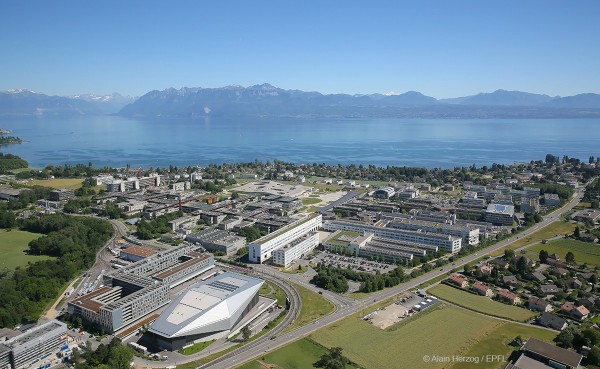Psi-k conference
The conference will bring together the community that is active in the field, to develop fundamental theory, algorithms, and computer codes in order to understand, predict, and design materials properties and functions. Theoretical condensed matter physics, quantum chemistry, thermodynamics, and statistical mechanics form its scientific core. Applications encompass inorganic, organic and bio-materials, and cover a whole range of diverse scientific, engineering, and industrial endeavours.
- 3.5 days (from Monday afternoon to Thursday evening)
- 6 plenary talks
- 38 symposia
- 6 parallel sessions
- 120+ invited talks
- 170+ contributed talks
Important dates
May 31 (23:59 CEST)
- Early-bird registration deadline
- Abstract submission deadline, to be considered for contributed oral presentations
June 30 (23:59 CEST)
- Regular registration deadline
- Abstract submission deadline for posters
July 31 (23:59 CEST)
- Late registration deadline
Details and registration:

Plenary speakers
- Gábor Csányi, University of Cambridge, UK
- Feliciano Giustino, University of Texas at Austin, USA
- Francesco Mauri, University of Rome Sapienza, Italy
- Angelos Michaelides, University of Cambridge, UK
- Lucia Reining, Ecole Polytechnique, France
- Nicola Spaldin, ETH Zurich, Switzerland
Symposia
A | Physical Formalisms
- Density and density-matrix functional theories
- Novel theoretical and computational developments in diagrammatic many-body theory
- Strong correlations beyond local approximations
- Open quantum systems and non-adiabatic dynamics
- Emerging aspects of electron-phonon interactions
- Strongly correlated materials
- Exciting core electrons
- New developments in quantum Monte Carlo simulation
- Frontiers of DFT and beyond
- Extreme non-linear optics
- Excitons in complex materials
- Non-equilibrium physics
- New developments in first-principles calculations of charge and heat transport
B | Algorithms, Software and Data
- Recent progress in reduced scaling methods: from quantum chemistry and DFT to second-principles
- Statistics and configuration sampling
- Electrified solid-liquid interfaces
- Software engineering: libraries for electronic structure applications
- Machine-learned surrogate models: the quest for ab initio accuracy at a fraction of the cost
- Machine learning for many-body quantum physics
- Structure searching and crystal structure prediction
- Materials discovery by high-throughput screening and artificial intelligence
- Emerging and future computing
- Current and future challenges associated with data infrastructure and reproducibility
C | Applications to Real Materials and Materials Design
- Ab initio guided design of structural materials
- Functional materials and devices
- Magnetism and spintronics
- Surfaces and interfaces at realistic conditions
- New physics in 2D materials and van der Waals multilayers
- Molecules, macromolecules and biomolecules: challenges and new opportunities for electronic structure methods
- Twisted bilayer materials
- Topological properties in real and momentum space
- Strong spin-orbit and magnetic systems
- Materials for energy
- Polaron and excitons: fundamentals of charge trapping and its impact in applications
- Electronic structure calculations and molecular modeling in industry
- Interfacial water: structures and dynamics
D | Simulations across Domains (joint with CECAM)
- Materials modeling beyond electronic structure
- Broadening the picture
Low-volume newsletters, targeted to the scientific and industrial communities.
Subscribe to our newsletter